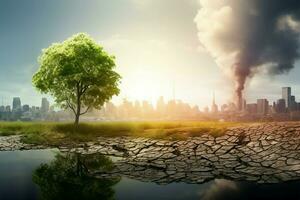
Background
The environment and inflicting damage on the environment as a means or method of warfare is not new. Manipulating environmental conditions, such as instigating floods or using chemicals to harm the environment has existed throughout the decades. Indeed, deliberately inflicting harm on the environment can have considerable consequences in wartime especially on the civilian population and has been the subject of debate in international criminal law circles. Indeed, it is a developing area but recent advances indicate this might be shifting.
Legislation in place to bring environmental damage forward as a war crime
The most significant contribution to the inclusion of environmental damage as a war crime is found in article 8(2)(b)(iv) of the Rome Statute, the founding treaty of the International Criminal Court. This article prohibits attacks which ‘cause.. long-term and severe damage to the natural environment which would be clearly excessive in relation to the concrete and direct overall military advantage anticipated.’[1] The usage of the terms ‘clearly excessive’ therefore excludes environmental damage that is caused as a consequence of an attack, as long as it was not disproportionate to the military advantage anticipated. Furthemore, the inclusion of ‘long-term and severe damage’ further excludes environmental damage considered as collateral damage and also provides a certain indication of the extent of damage that must occur in order to be considered as a war crime.
As such, while this is recognised in international criminal law, no claim has ever been brought successfully before an international court or tribunal.
Ukraine
There is some indication that this area of international criminal law might change. Although the conflict in Ukraine is not the first conflict in which deliberate environmental damage has been put on the table, it has struggled to successfully be recognised. By organising a conference last October to bring attention to this war crime, it brought environmental experts together, with policy, scientific and legal backgrounds. This might perhaps be the strength of discussing environmental damage as a war crime now, as policy makers and legal experts can leverage the urgency of the climate crisis to underscore the importance to recognise this crime on an international level.
Conclusion
Successful claims in international criminal law are never a guarantee and like many areas of international law, international criminal law is continuously evolving. It is interesting to notice how it evolves, and how external consequences can influence the development of an area of law, and solidify an often overlooked consequence of war.
By The European Institute for International Law and International Relations
References















